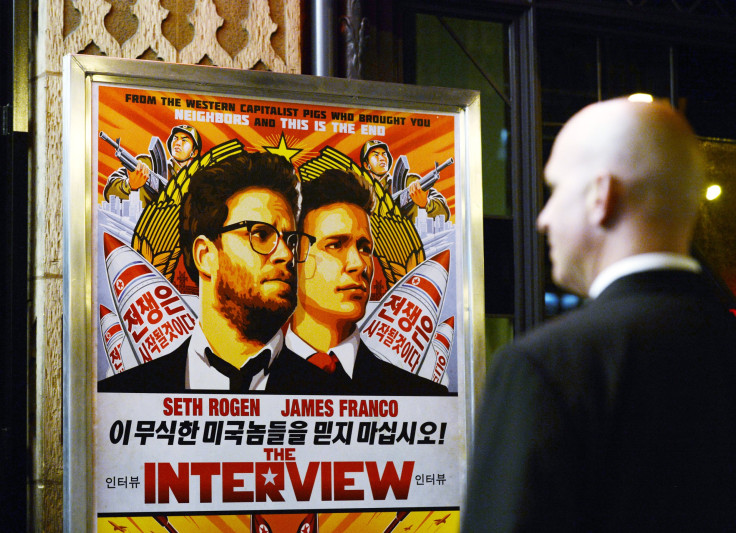Sony Hack: US Could Employ Sanctions, Terrorism Sponsor Designation Against North Korea

The United States will “respond proportionately” to North Korea over its cyberattack on Sony Pictures Entertainment, President Barack Obama said during his end-of-year press conference Friday, just hours after U.S. officials implicated the Pyongyang regime as the party responsible for the massive hacker attack and threats over the movie "The Interview." While Obama offered no further details on what a U.S. response might look like, experts say he has a number of options on the table – including sanctions that could sting the hermit kingdom even harder than the ones currently in place.
“A lot of people have this mistaken view that U.S. sanctions on North Korea are maxed out,” said Sung-Yoon Lee, a professor of Korean studies at Tufts University’s Fletcher School. “But in terms of sanctions legislation, U.S. sanctions on North Korea are relatively weak – far weaker than U.S. sanctions on Iran, Russia, Burma, Syria or Ukraine.”
One option, Lee said, could be to label the North Korean government as an entity of “Primary Money Laundering Concern,” a designation that would blacklist the government as a money-laundering hub and punish agencies and financial institutions that do business with North Korean officials. “It would not be unprecedented,” Lee said. “It would be a major leap in terms of pressuring North Korea, but it’s not egregious and not disproportionate.”
A more comprehensive sanctions bill, known as the North Korea Sanctions Enforcement Act, has already passed the House of Representatives and penalizes North Korean officials implicated in human rights abuses. But the legislative process on those measures will have to restart with the new session of Congress in January. In the meantime, Lee said Obama could issue an executive order and block foreign assets for those officials.
Bruce Klingner, a senior research fellow for Northeast Asia at the Heritage Foundation, said that stronger U.S. sanctions on North Korea are already overdue. “The U.S. has imposed measures in response to human rights violations by Zimbabwe, Congo and Burma, but nothing yet against North Korea, despite 10 months having passed since a United Nations inquiry report concluded North Korea had committed human rights violations so widespread, systematic and egregious as to qualify as crimes against humanity.”
Another measure could be to re-list North Korea on the U.S.’ State Sponsors of Terrorism list. North Korea was on that list until President George W. Bush removed it in 2008 in an attempt to defuse tensions in negotiating with Pyongyang. Klingner said the Sony hacking incident and subsequent threats on movie theaters that showed the film fulfill the U.S.’ legal requirement as an act of terror. “Under U.S. law, the definition of a terrorist act includes a criminal act committed in a jurisdiction of the U.S. intended to coerce the population,” he said.
But Sue Terry, a senior research scholar on North Korea at Columbia University, said the U.S.’ arsenal was limited in terms of invoking long-term change. “The problem is there are not many other sticks that the government can employ,” she said. “What other thing can we do? Outside of any kind of lethal or military response – and we’re not going to do that. There are not many tools in our toolbox.”
Klingner, meanwhile, said he didn't expect the Obama administration to take firm action. "What we’ve seen with sanctions against countries, and with the depiction of the Asia pivot, is that there will be strong rhetoric not matched by actions in order to implement it," he said. "Without details, the president’s affirmations of resolve and strong action become meaningless."
North Korea’s cyberoffensive against the United States may signal more worrying developments in the larger picture, Lee said. “They’re laying the ground for another major provocation like a nuclear test,” he said. “When they do that, North Korea will say, ‘This is our self-defensive measure against the human rights racket at the U.N. and this vile attempt by Sony to vilify the great leader,’ ” Lee said, referring to the United Nations General Assembly’s vote this week to refer North Korea to the International Criminal Court over human rights abuses.
“And as illogical as that argument is, it will resonate in some circles,” he added. “The message will be clear: ‘Don’t criticize us. Don’t dare to offend us.’ ”
Terry agreed that a nuclear test was probably forthcoming. “This whole charm offensive is coming to an end,” she said, referring to a 20-year cycle of provocation and conciliation employed by North Korea’s regime.
“I’m not shocked by North Korea’s [actions] at all,” she added. “What I’m shocked by is Sony’s response. [North Korea] does not have this kind of capability to blow up movie theaters in the United States. It’s not suicidal. They were just not going to do that. For us to just completely cave doesn’t make any sense.”
© Copyright IBTimes 2024. All rights reserved.






















